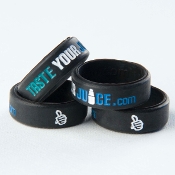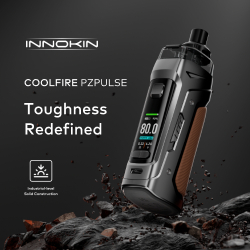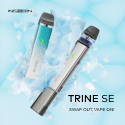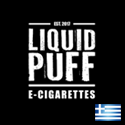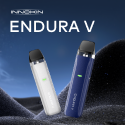Bottom Line: This overrated QSO appears identical to, and performs identically to, the Samsung 25R which a 20A-rated 2500mAh cell.
But one of the documents I requested from QSO, the Material Safety Data Sheet (MSDS), says that this cell uses the same “chemistry” as LiPo’s. That does not mean they are dangerous! If they do use this chemistry though it would mean that if they are misused or mishandled they can go into thermal runaway, and possibly burst, at a lower temperature and that their reactions during runaway are more violent than the other Li-Ion chemistries we can use.
I was very surprised to see QSO list the same chemistry as used by LiPo’s in their MSDS since that chemistry, lithium-cobalt oxide (LCO), is rarely used anymore in round cells. I am told by those who know a lot more about the battery industry than I do that the price of cobalt is just too high to justify its use for low cost round cells like the ones we use. Well, they’re low cost when manufactured. The markups in price before they get to us are huge.
The wraps for these cells say “LI-MN” which I am pretty sure QSO wants us to think is lithium-manganese. This is consistent with the chemistry for some non-LiPo cells we use but is in direct conflict with QSO’s claim that these are LiPo’s in their MSDS. There is no manganese in a LiPo cell.
So what’s the big deal about having an accurate MSDS? They exist to inform employees and first-responders of the risks involved if they need to handle a spill or fire involving a product. If the MSDS is wrong that would make responding properly harder to do.
An incorrect MSDS would also mean that any vendor importing those cells into their country, like in the EU, would be submitting documents with the wrong info to the authorities. This means the wrong substances are being registered and could affect whether that vendor can sell those cells if the MSDS issues are discovered. I suspect that would be less than good news to the vendors.
If you believe the MSDS is accurate then QSO is using the same chemistry as LiPo’s for these cells. With all of the other cells we can buy though why would we buy ones that use the same chemistry as LiPo‘s (with its increased volatility)? If the MSDS is not accurate, and these cells are rewraps, then QSO needs to explain why this safety document says they are LiPo’s. Either way, this earns this QSO cell a Do Not Buy recommendation from me.
Two cells were purchased for the purposes of testing by me.
Ratings graphic and MSDS: https://imgur.com/a/ekMReeb
Test report: https://bit.ly/30AoLq5
I want to work for the vaping community full time! If you feel what I do is worth a couple dollars a month and you would like early access to battery availability and testing news and a say in what I test then please consider becoming a patron and supporting my testing efforts: https://www.patreon.com/batterymooch
These tests only note the ESTIMATED ratings for these batteries at the time I tested them. Any battery that is not a genuine Samsung, Sony, Murata, LG, Panasonic, Molicel, or Sanyo can change at any time! This is one of the hazards of using “rewrapped” batteries or batteries from other manufacturers so carefully research any battery you are considering using before purchasing.
Misusing or mishandling lithium-ion batteries can pose a SERIOUS RISK of personal injury or property damage. They are not meant to be used outside of a protected battery pack. Never exceed the battery’s continuous current rating and keep the plastic wrap and top insulating ring in perfect condition.
Any rating in my ratings tables can change at any time as different grade cells appear on the market, we get swamped with fakes, or new information becomes available to me. Please, never assume that the ratings in the tables are permanent and will never change! Always download the latest version before considering any cell purchase.
To see how other cells have tested check out this link: https://www.e-cigarette-forum.com/forum/blog-entry/list-of-battery-tests.7436/









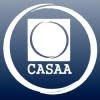





 Store
Store
